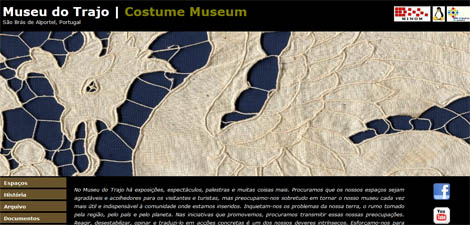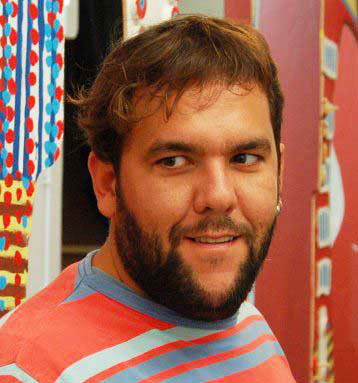 The recent crisis brought the need to adjust the modus operandi of our society. It is increasingly important to develop alternative solutions, grow in community and spread social activism. Demanding a society of knowledge and sharing, equipped with the necessary tools to fight those who consider themselves the owners of knowledge, is an imperative for the renewal of energies in various sectors and culture is no exception.
The recent crisis brought the need to adjust the modus operandi of our society. It is increasingly important to develop alternative solutions, grow in community and spread social activism. Demanding a society of knowledge and sharing, equipped with the necessary tools to fight those who consider themselves the owners of knowledge, is an imperative for the renewal of energies in various sectors and culture is no exception.
Technological imposition according to digital standards managed by international corporations and the responses that social movements have been intensifying in the fight against US maneuvers that intend to control the Internet, allow us to identify a moment where, more than ever, the power of intelligence collective is a threat to many.
It is necessary for every citizen to understand that there is a world beyond Microsoft and that choosing between Windows and Linux or MS Office or Open Office is not a mere technological option, but rather an ethical position, also a policy of choosing Free Software and assuming defense of a free Digital Culture.
Num text published by sociologist Sérgio Amadeu and his associates on the Culture Portal of the Ministry of Culture of Brazil, a consideration by then Minister of Culture Gilberto Gil is cited that helps us to synthesize this symbiotic relationship between Culture and the Digital Universe, in the way it represents a structural change in the behavior of contemporary societies: "digital culture is a new concept. It starts from the idea that the digital technology revolution is, in essence, cultural. What is implied here is that the use of digital technology changes behaviors. The full use of the Internet and free software creates fantastic possibilities to democratize access to information and knowledge, maximize the potential of cultural goods and services, amplify the values that make up our common repertoire and, therefore, our culture, and leverage also cultural production, including creating new forms of art. "
Societies have learned to live with the different technologies available on the thousands of platforms that exist on the Internet. The technology itself, grows with the development of collaborative interfaces, increasingly intuitive and dynamic, responding to the needs of users who are connected to different networks and who take on extended ways of making their presence felt in the horizontal digital universe. The network user is no longer a mere beneficiary of digital tools, he has the power to participate in defining his future, whether in its technological construction, or in the possibility of cultural diffusion on the networks and in the multiplication of new users.
It is already impossible to think about cultural activity without one or more digital networks being integrated into the work methodologies. This paradigm shift enhances the individual knowledge of each agent in the collective experience, intensifies the scope of action of the contents and allows the work of art and cultural assets to be designed in their digital aspect, even enabling the creation of works in collaborative processes in network, made possible by the ease of legal sharing of content that Creative Commons came to implement.
In the Algarve context, the way cultural agents have been working, with deficient systems in their digital practices, lacks greater investment in human potential and in boosting a proactive Digital Culture. This investment essentially stems from the need to find activists willing to assume the horizontality that networking lacks. It is about understanding the concept of Network, in a system used to working vertically and where the more recent past tells us that part of the public networks that were created, in practice, continue to work in the vertical hierarchy that stifles the impossibility of these projects deserving to embrace the word network.
In the Algarve, at the Museu do Traje de São Brás de Alportel, the advantage of choosing the path of free software has long been realized and the institution's employees are qualified to work on Linux. This fact is not just a technological choice, it is above all a social and political position that reveals an ideology, publicly projected when it clearly assumes its convictions and goals.
In your website we can read that “The Costume Museum of São Brás de Alportel is a LINUX MUSEUM. It is above all an ethical decision, as much more than a totally free operating system, LINUX is a FREE system…”.
Listing its assets and taking an active and participative position in the development of a Free Digital Culture, the work of this museum deserves to be carefully observed by the Algarve's cultural agents, and may serve as an impetus for the necessary debate on the democratization and amplification of media production and dissemination of culture in the Algarve.
 Author Jorge Rocha is an Independent Artist and Producer
Author Jorge Rocha is an Independent Artist and Producer


















Comments